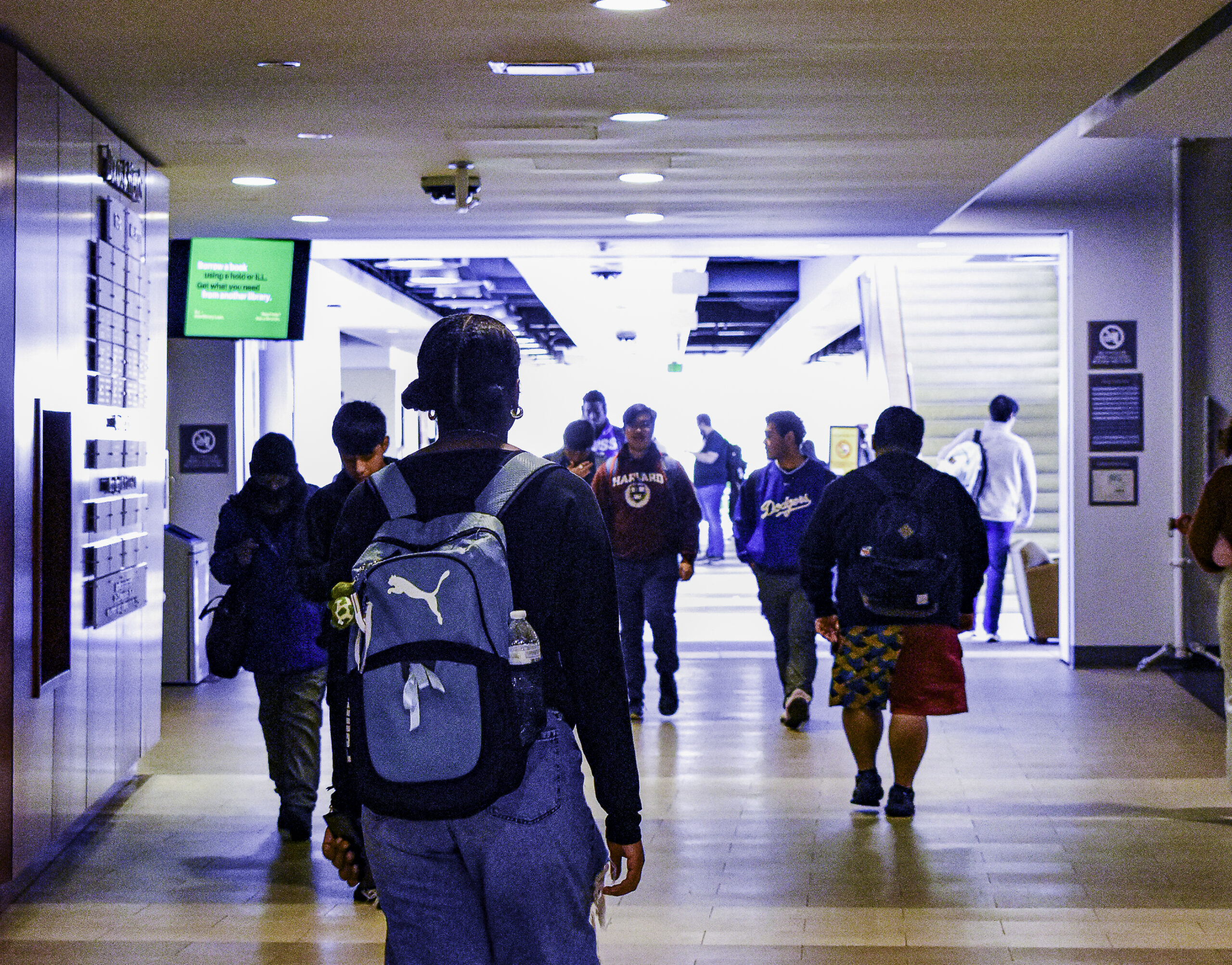By Stephinie Phan, Art Director
California’s budget crisis is putting a squeeze on the California State University system, and CSUDH administrators and faculty are feeling the pressure. Dominguez Hills faces a $12 million cut to its base operating budget for the 2025-2026 academic year, which means the university will likely have to scale back some of their plans at every level.
In addition to rising costs, there are two significant reasons underlying CSU’s budget cut: dwindling state support for higher education and lower enrollment. In 2020, CSUDH boasted a student population of over 17,000 students – that number has since dropped to approximately 14,118, according to an estimate by acting provost Philip LaPolt.
The university has hosted “Lunch and Learn” and town hall meetings to inform the campus community about the budget. LaPolt hosted the most recent town hall on Oct. 11. LaPolt told The Bulletin the university had to reconsider class schedules and other strategies to accommodate falling enrollment.
“We are managing vacant administrator and staff positions, decreasing operating expenses, and shifting expenses to other funding sources – those types of things,” LaPolt said.
CSU’s budget issues have been a “hot topic” of conversation in recent years, according to CSUDH budget director Nick Norimoto. He said CSU campuses had to reduce spending based on what the state decided to cut back on. In addition to lower enrollment, and less support from Sacramento, he said the pandemic exacted a heavy toll on the university. The state has told CSU to plan for “an ongoing base General Fund reduction of 7.95 percent” starting next fall.
As the state stares down a $45 billion deficit, CSUDH administrators are urging students, faculty, and staff to brace themselves for some lean years ahead.
In a statement emailed to Toros on Nov. 1, President Thomas A. Parham warned that there was no “cavalry of state or CSU systemwide resources and reserves coming over the hill to rescue us.” Parham asked the Toro Nation to avoid “defensiveness and finger-pointing,” and encouraged everyone on campus to roll with the resistance.
“The team and I will do our best to preserve the integrity of the academic core,” Parham wrote. “Even as we may need to redefine who we are and aspire to be in the future.”
While CSUDH administrators explore possibilities for tomorrow, faculty members grapple with the challenge of making ends meet today. Although CSUDH sets the budget for each division of the university, Norimoto said each division is responsible for distributing funds to their respective departments.
Each department has its specific issues – resources, staffing, course availability, or even planning events for students and alumni – and some departments have only recently received their budget. Accommodating financial constraints without compromising academic outcomes has proven to be a tough task for faculty, especially department chairs.
“Departments [are] sharing stuff, some colleges are sharing stuff. So everybody is doubling up,” explained psychology professor and child development chair Megumi Kuwabara. “They can’t do one job anymore. They have to do everything.”
Without proper funds to fill positions immediately, Kuwabara said her department has been relying on short-term hires to cover a staffing shortage.
“I’m doing basically three or four people’s job as a chair, because we [have] one and a half advisor[s],” Kuwabara said.
In addition to teaching and service, tenure-track faculty are expected to conduct research or continue their professional practice. Economics professor and department chair Jose Martinez said tightened budgets have prevented some faculty from dedicating time toward those activities.
“There might be some faculty who want to go to a conference to present their research, and they’re not going to be able to do that because there’s not going to be any funds for them to use for that travel,” Martinez said.
Steve McFarland, an executive board member of the California Faculty Association, blamed the budget woes on “a long period of divestment in public education and changes in the university.” McFarland told The Bulletin the situation has been difficult for students and faculty. “Statewide tax money is not going as much to education, which means students and their families have to pay more, take on more debt, work more hours,” McFarland said.
Jhanella Martinez, vice president of finance at Associated Students, Inc., said it was “super important” for students to stay informed about the budget issues. Martinez encouraged Toros to attend meetings hosted by CSUDH officials to better understand what the crisis could mean for them and their education.
“I feel like a lot of them do talk about, ‘oh, we’re having budget cuts here and there’,” Martinez said. “But I don’t think they completely understand where we’re exactly having the budget cuts and how it affects us.”

